
What We Believe
Our English panel dedicate ourselves in helping students fall in love with English. We believe that it is vital for students to have the confidence to express themselves. Through having various interactive activities, our kids are always thirsting for knowledge.
Our School-based Curriculum
We aim to provide authentic and diversified learning experiences for our students. Therefore, throughout the year, we keep tailoring our school-based English curriculum to suit their needs.
Holistic Approach to Literacy Development
|
Key Stage 1 (Primary 1-3) |
Key Stage 2 (Primary 4-6) |
|
◊ Primary Literacy Programme ◊ Wide Range Readers |
◊ Reading and Speaking Workshop ◊ E-learning (BYOD) |
Features of Our School-based Curriculum
1. Learner in the Driver's Seat
E-Learning
BYOD (Bring Your Own Device) Programme is implemented in Primary 4 and 5 levels. Also, elements of e-learning are incorporated in P.1-6 English lessons.
Different e-learning platforms and tools are used in lessons to enrich students’ learning.
Students installed different e-books and learning apps in their devices. Learning becomes more convenient and students get to enjoy the flexibility and autonomy to explore the subject-related knowledge on their own. Teachers can also assess students’ learning progress easily by the data collected on the learning platforms.
Besides, e-learning promotes collaborative learning among peers as well. Students can share their works, post comments and evaluate their peers’ works on online platforms.
In the whole process, students are in the driver’s seat. They shoulder more responsibility and take charge of their own learning.
2. Reading is Fun
PLP-R/W
PLP-R/W is a literacy programme which takes a holistic approach to language learning incorporating the four skills with an emphasis on reading and writing.
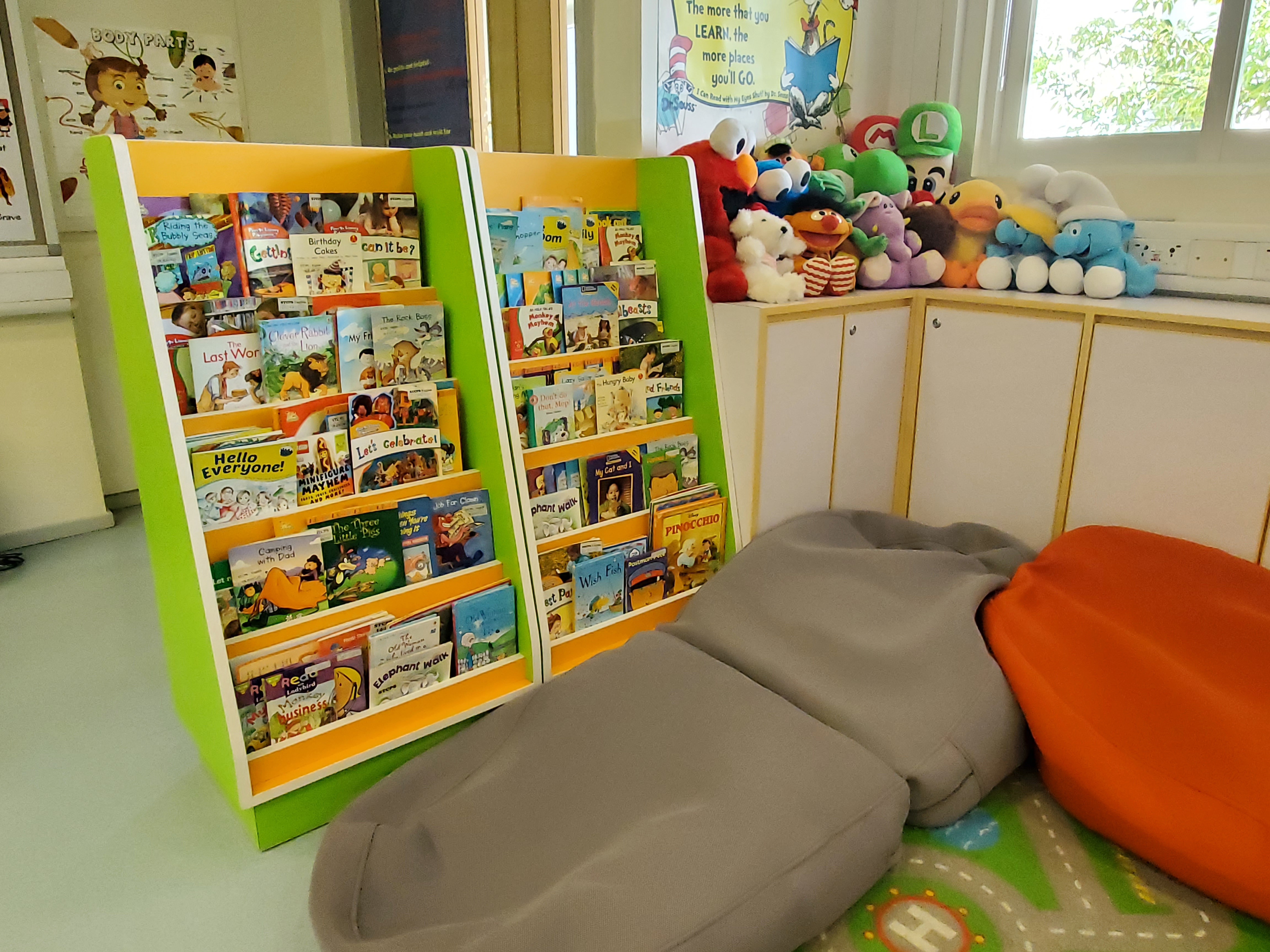
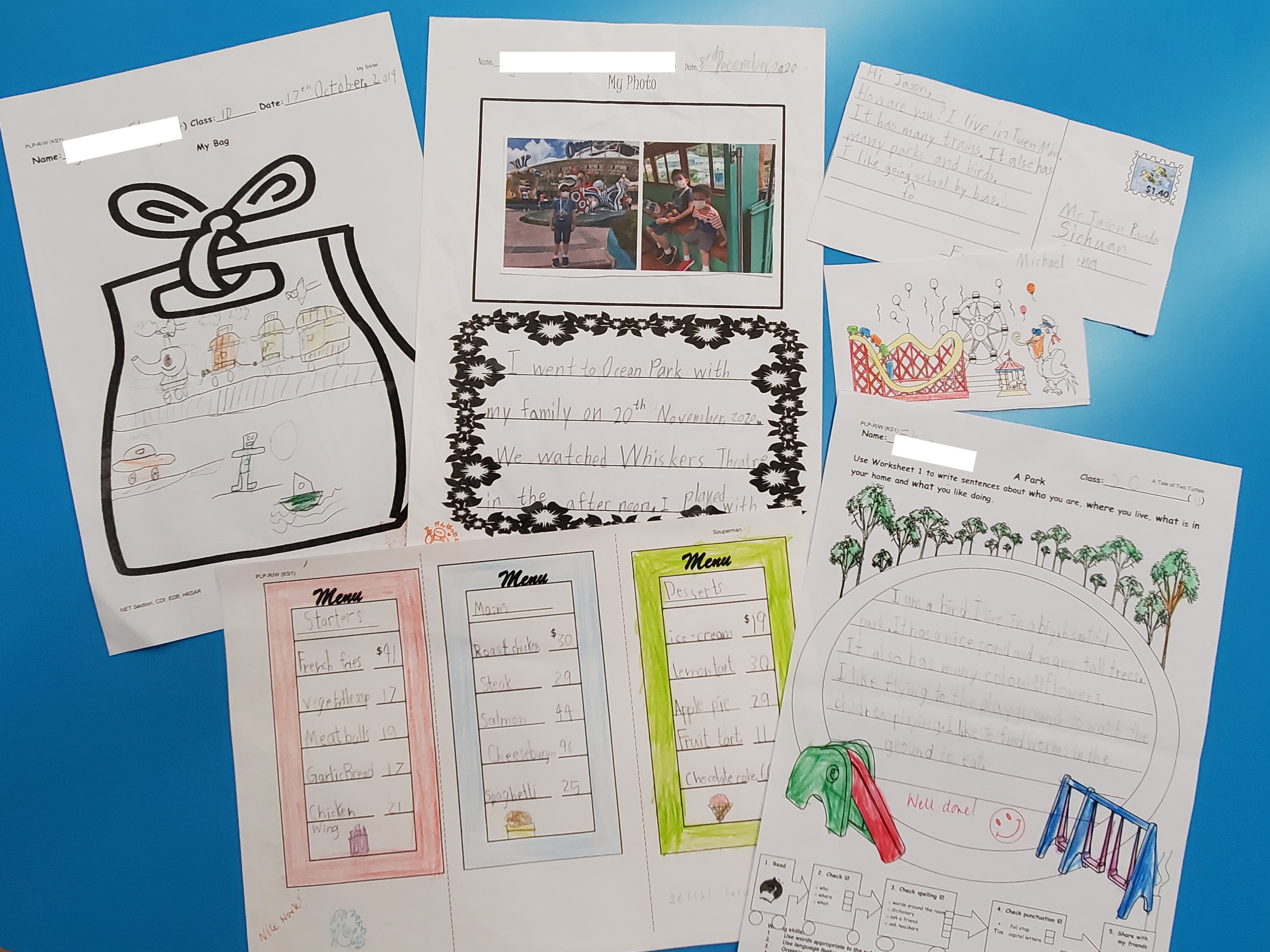
Students come into contact with different types of texts. They read and design posters, write poems and chants during the lessons. Our NET helps students make use of their creativity. We allow room for mistakes and encourage students to write and express as much as they can!
Interesting activities such as singing, cooking and playing games are incorporated into the programme. The engaging atmosphere in the lesson helps students gradually build up their interest in reading and develop their reading habits.
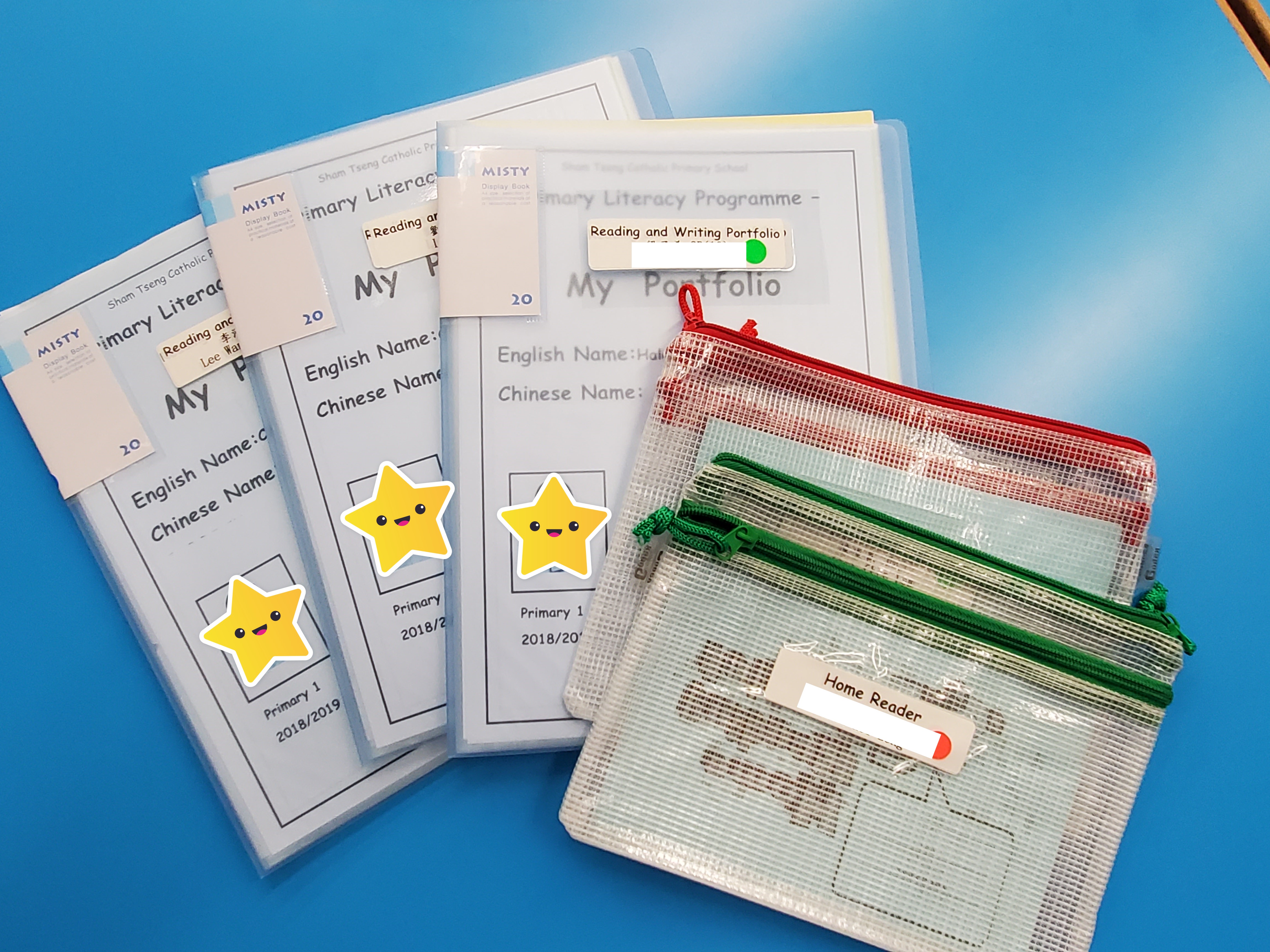
We value learner diversity. Every student has their own pace of learning. Therefore, students have their own book bags and individualized records of their work throughout all their PLP-R/W lessons. All their worksheets and productions are organized in their portfolio so teachers can keep track on their records and make necessary adjustment to teaching.
3. Appreciate the Literary Arts
Reader Curriculum
Literature is a highlight of our school based English curriculum. Other than the course book, we introduce our school-based reader curriculum to all students. Students learn authentic English and vocabulary from stories. Reading strategies are taught during the lessons where students learn reading skills, such as pronoun referencing, skimming and inferencing skills, etc.
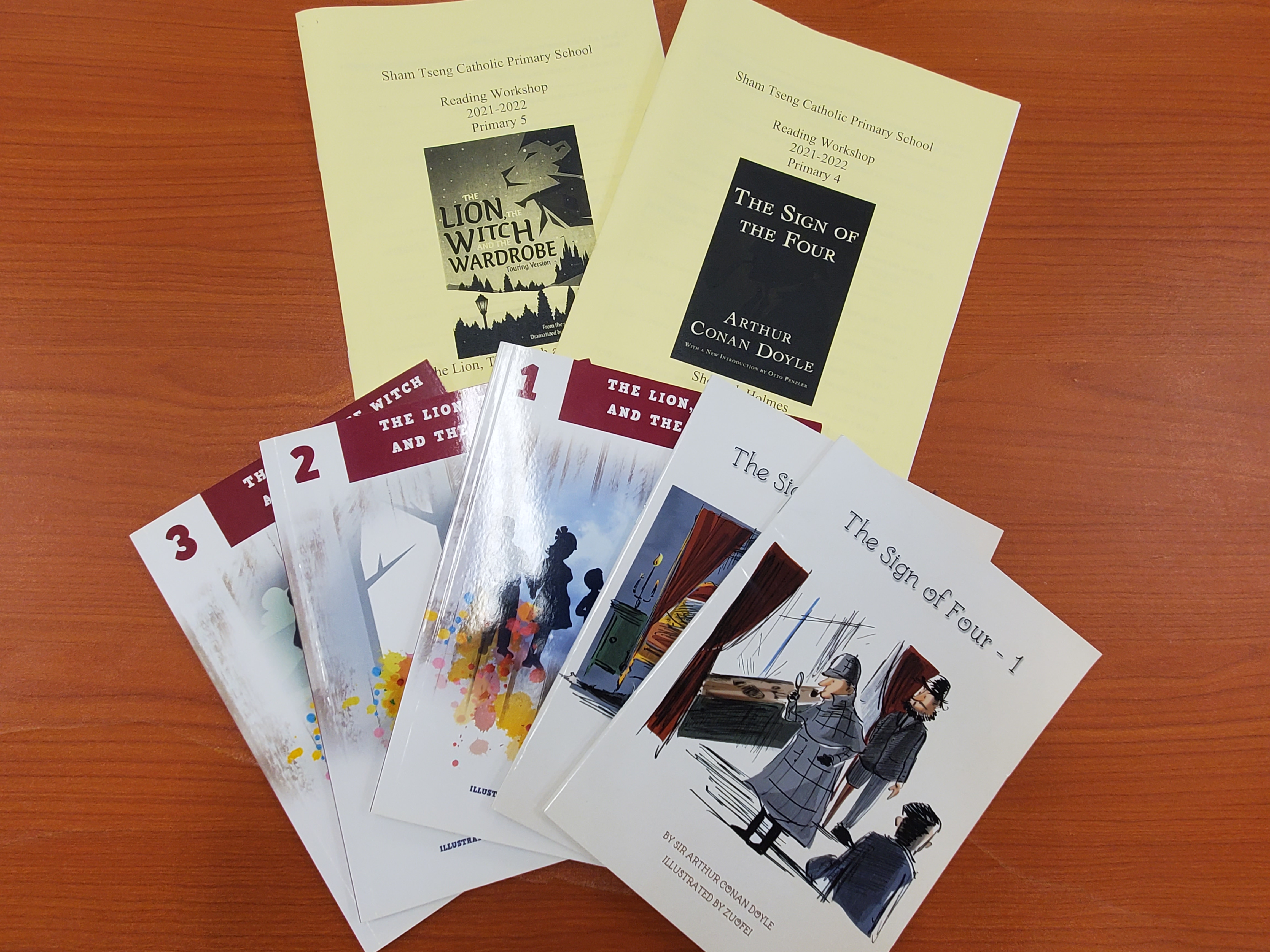
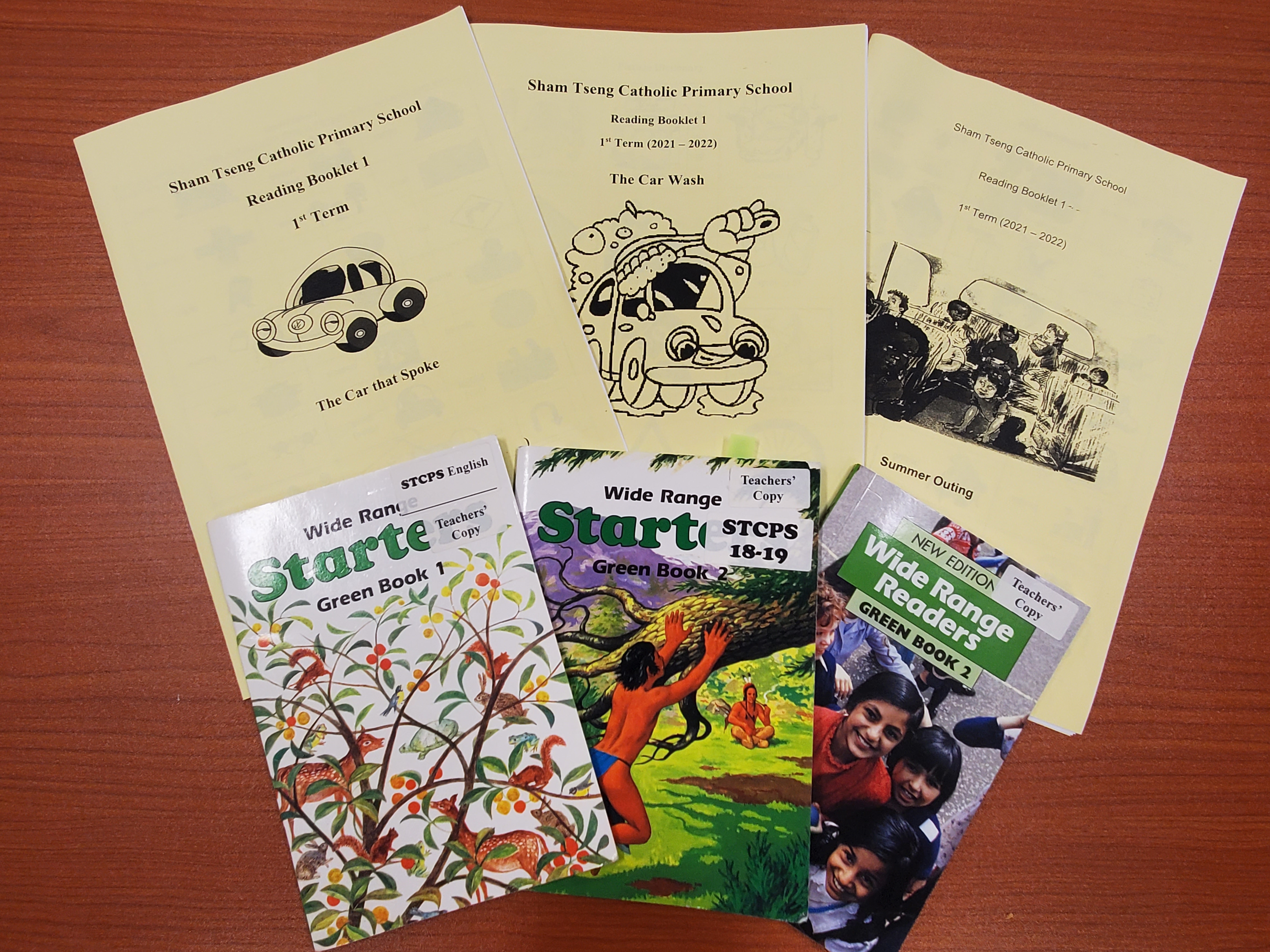
The Wide Range Starters are the readers for Primary 1 to 3. The graded readers consist of different short stories which suit the interests of junior students. Besides, classic readers are adopted in Primary 4 and 5 reader curricula. They are “Sherlock Holmes” and “The Lion, the Witch and the Wardrobe”. As for Primary 6, students will have to read various text types with the use of iPads in the lessons.
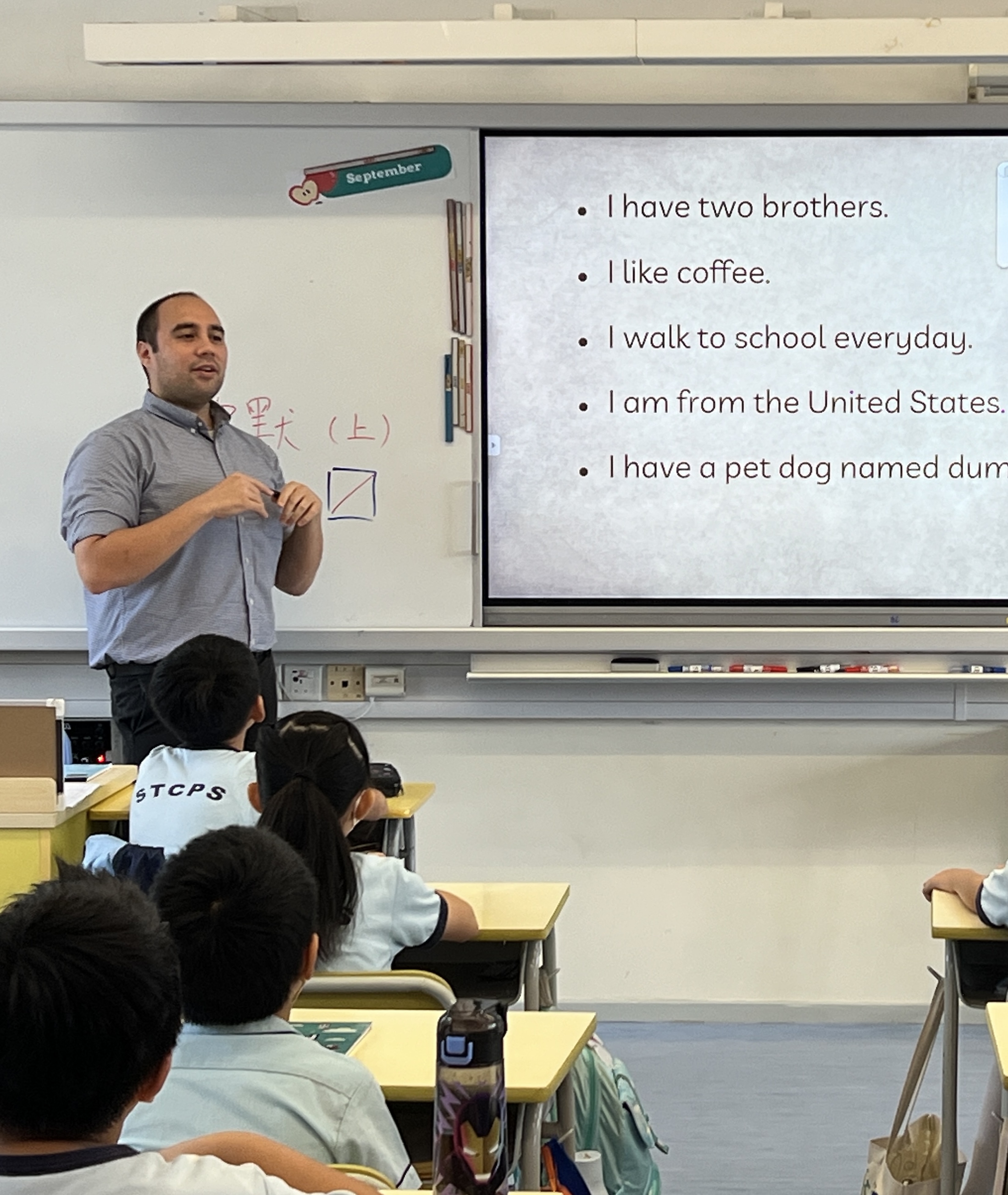
Not only do we expect our students to learn English through reading, we also want them to learn how to apply higher order thinking skills in comprehending stories and appreciate the literary arts.
Therefore, different levels of questions and interactive learning activities are designed to allow them to experience the joy of reading.
4. Organized Learning and Teaching
School-based Module Booklets
Meaningful and well-designed homework can help students consolidate their knowledge, explore different issues and apply what they have learned.
Our school developed our school-based module booklets based on the context of the textbook chapters. Students learn English language step by step. They first build up their vocabulary, then practise grammar patterns and construct sentences. Detailed notes of grammar items and sentence structures are included for students’ self-study.
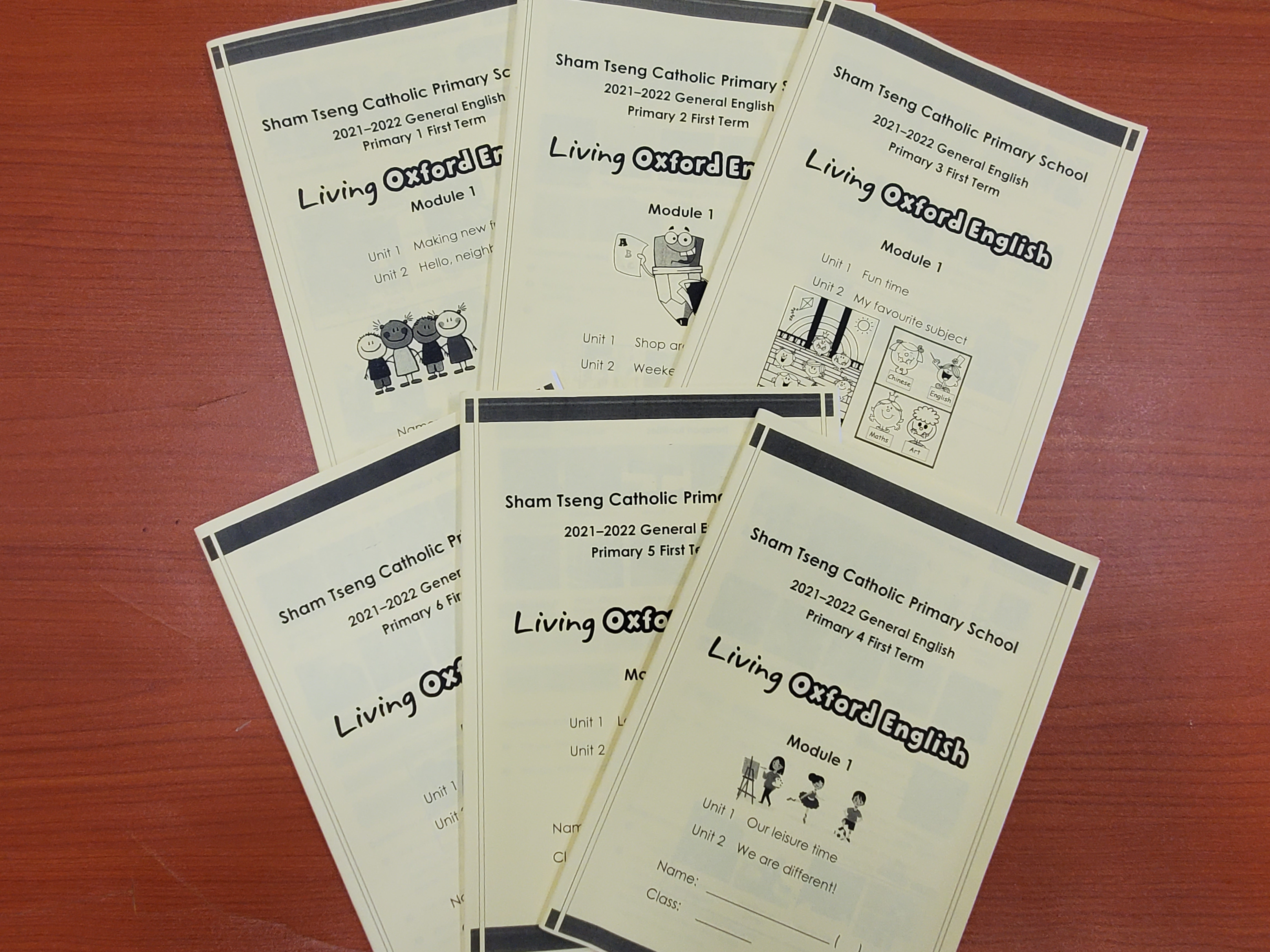
Each unit includes an extended reading task and ends with a meaningful writing task. Self-learning tasks are also incorporated in the booklets. Students scan the QR code, watch the video and complete the language task by themselves as a preview. Not only do the above tasks motivate our students to learn independently after class, they also help students develop their good learning habits.



